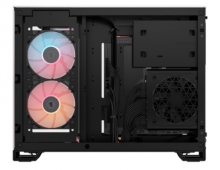
CUDA Now Available For More x86 Processors
Nvidia's CUDA has been getting some serious parallel-computing coverage as of late, with Chinese scientists running the world's fastest simulation on Tianhe-1A and Microsoft announcing support for GPU computing in their mainstream Visual Studio developer tools.
The Portland Group (PGI) also announced that they are releasing new CUDA compilers that target x86 CPUs.
This means that developers at ISVs can write applications, using CUDA C and CUDA C++ toolkits, that target workstations and servers running CPUs only, or a combination of CPUs and NVIDIA GPUs. This gives developers a unified codebase for CPUs and GPUs, and provides them with an elegant programming model for multi-core CPUs on Linux, MacOS and Windows.
PGI?s release of CUDA x86 compilers enables developers to protect their investment in parallelizing their applications, by using the same code for CPUs and GPUs.
The NVIDIA CUDA GPUs platform supports all GPU computing programming models, APIs, and languages - including CUDA C/C++/Fortran, OpenCL, DirectCompute, or the recently announced Microsoft C++ AMP.
This means that developers at ISVs can write applications, using CUDA C and CUDA C++ toolkits, that target workstations and servers running CPUs only, or a combination of CPUs and NVIDIA GPUs. This gives developers a unified codebase for CPUs and GPUs, and provides them with an elegant programming model for multi-core CPUs on Linux, MacOS and Windows.
PGI?s release of CUDA x86 compilers enables developers to protect their investment in parallelizing their applications, by using the same code for CPUs and GPUs.
The NVIDIA CUDA GPUs platform supports all GPU computing programming models, APIs, and languages - including CUDA C/C++/Fortran, OpenCL, DirectCompute, or the recently announced Microsoft C++ AMP.





















